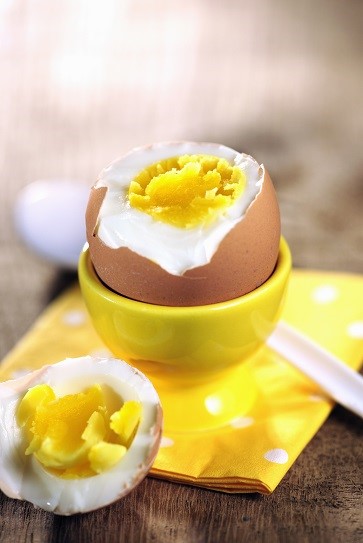 There’s little doubt that awareness of antioxidants is rising. Journalists everywhere are running around like headless chickens trying to find a new super herb or rare fruit to recommend to their readers. New formulations of resveratrol and astaxanthin are popping up on a daily basis.
There’s little doubt that awareness of antioxidants is rising. Journalists everywhere are running around like headless chickens trying to find a new super herb or rare fruit to recommend to their readers. New formulations of resveratrol and astaxanthin are popping up on a daily basis.
On the acne front, the latest interest is topical antioxidants. Vitamin E creams are touted as delivering antioxidants directly to your skin, and they do that well. Antioxidants are particularly hot among life extenders who believe they’ll live to age 150 or more.
Supplement companies believe that if they just slap the word antioxidant on their protein powders, they’ll wake up buried in cash…
…but amidst all the hype, there’s one antioxidant you’ll rarely see mentioned: glutathione.
Glutathione – overlooked but very promising
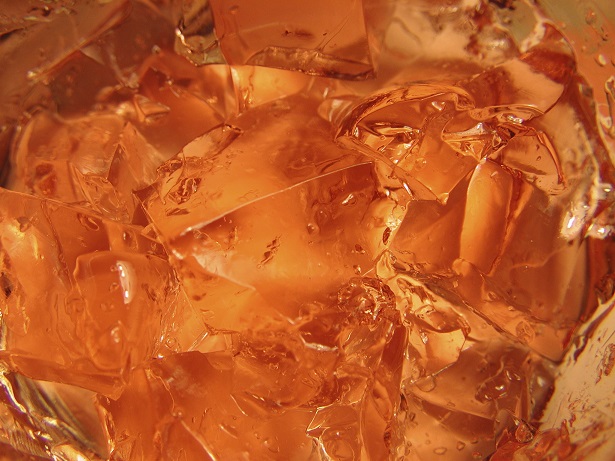 Glutathione is known in medicinal circles as the “master antioxidant”. There’s reportedly over 1000 studies showing beneficial health effects.
Glutathione is known in medicinal circles as the “master antioxidant”. There’s reportedly over 1000 studies showing beneficial health effects.
Low levels of glutathione are found in major diseases ranging from diabetes, chronic fatigue, chronic pain, to colon cancer. In one study, among people with heart disease, those with the lowest bloodstream glutathione were 30 percent more likely to have a heart attack.
Many of alcohol‘s long term dangers are caused indirectly by glutathione deficiency, since the main by-product of ethanol produced in liver is acetaldehyde and glutathione has to detoxify it.
Read Annihilate Your Acne – get the ultimate diet for clear and glowing skin!
Despite these powers, glutathione only receives the attention of the most dedicated acne masterminds. That’s all going to change today. For acne, glutathione is up there with zinc, the best nutrient for inflamed pimples, and vitamin A, the greatest for oily skin.
ONE: in this study scientists gathered skin samples from the stratum corneum of both acne patients and healthy subjects. The amount of glutathione in acne-prone skin was “significantly lower” than in acne free skin. Additionally, the entirety of the acne patient’s skin was low in glutathione, both acne lesions and acne free areas.
Clearly, it’s not just a local phenomenon caused by environmental factors (air pollution, cigarette smoke) but a condition across the whole body. The conclusion was “a decrease in GSH quantity may play an important role in pathogenesis of acne vulgaris”.
TWO – this 1984 study gathered 42 men with severe acne and 47 women (26 with moderate acne and 21 with severe). The acne men had substantially lower glutathione peroxidase than the controls.
The patients also took 0.2mg of selenium for six weeks, which increased glutathione peroxidase levels substantially. Simultaneously, they observed a nice reduction in acne.
THREE – finally, this 2013 study gathered skin samples from 50 acne patients with varying degrees of acne (mild, moderate, and severe), and compared them with 40 age and sex-matched controls.
In patients with mild acne, the skin had only slightly less glutathione. But in patients with severe acne, glutathione was 20% lower. Moderate acne patients had just below 20% less. The acne patients also had far less superoxide dismutase, another antioxidant.
The results speak for themselves. Here we have clear evidence that your acne-prone genetics and rampaging teenage hormones can not only be counteracted, but crushed. Your glutathione levels are easily influenced. They only require some simple dietary changes to increase dramatically.
What is glutathione?
Glutathione is a tripeptide molecule manufactured in every cell of your body. It consists of three main ingredients – l-cysteine, glycine, and l-glutamine.
As humans, our bodies cannot synthesise many of the most important acne antioxidants like vitamin C, vitamin E, carotenoids, nor highly useful ones like resveratrol, polyphenols and astaxanthin. That’s why on this website, I recommend eating plenty of fruits, vegetables and herbs…
…but we also make many antioxidants on our own, like superoxide dismutase and thioredoxin reductase. Glutathione is the most important one. Large amounts are found in all major organs, particularly the heart, lungs, brain, and kidneys.
Important article – the top 6 vitamins and minerals for clearing acne
Glutathione tackles a massive range of reactive oxygen species. It hunts down lipid peroxides, free radicals, AGEs and many more. Glutathione can tackle any diseases caused by oxidative stress, whether it’s brain fatigue or retinal cell damage.
How does glutathione clear your acne?
When squalene, a component of the oil (sebum) on your face, comes up against air pollution or cigarette smoke, it oxidises into squalene peroxide. This mutant compound is dramatically more comedogenic (pore-blocking) than regular sebum. Your body is smart, however, and equips your sebum with antioxidants the moment it is manufactured in the sebaceous glands. The main one is the fat-soluble antioxidant vitamin E.
Glutathione is critical for acne as it naturally accumulates in the tissues of your skin. When there’s enough glutathione, chains of aggressive free radicals find themselves unable to spread and ultimately oxidise your squalene.
Glutathione cuts the head off the acne-causing snake. Squalene peroxide is never born and blocked pores and p.acnes bacteria never show their face.
Just as importantly, low levels of glutathione mean that other antioxidants will have to pick up the slack.
Vitamin E will have to focus on other fat soluble tissues in your heart, your brain, your blood vessels, the protective coating of your liver. It’ll be distracted from guarding the sebum where it’s so critically needed to stop acne.
Additionally, certain forms of gluthathione can actually regenerate vitamin E, once it has donated its electron to a free radical and lost its antioxidant powers. Glutathione is also the main ingredient of a separate antioxidant, thioredoxin reductase, which can restore vitamin C once it’s been used. Vitamin C is a water-soluble antioxidant, but also manufactures the skin protein collagen and reduces stress hormone levels.
Important article – the top 7 natural topical treatments for acne
Then there’s the endless other acne benefits. Insulin molecules can be damaged by free radicals, so glutathione can protect them and boost your insulin sensitivity. Vitamin A is important for oily skin and is carried the bloodstream by retinol-binding protein, which is vulnerable to oxidation. Lipid peroxides can bombard your brain and kickstart stress and anxiety.
Glutathione is known as the “master antioxidant” for a reason.
Low glutathione is an epidemic!
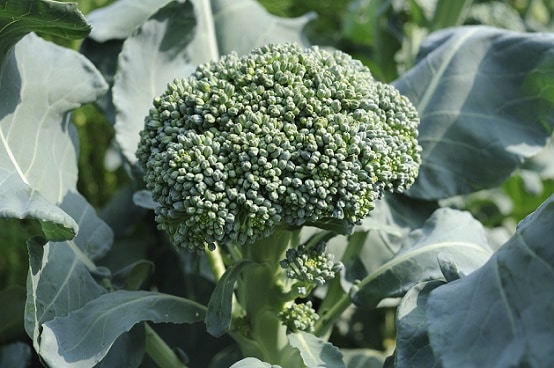 Despite all the focus on eating green vegetables and colourful fruits these days, low glutathione levels are very common. Why? Glutathione has another major role in the human body – detoxification.
Despite all the focus on eating green vegetables and colourful fruits these days, low glutathione levels are very common. Why? Glutathione has another major role in the human body – detoxification.
Your body has three phases of detoxification, and glutathione is mainly active in phase 1 and 2. A clear example is mercury. There’s a big misconception that this heavy metal, found in large fish and dental fillings, stays in your body forever, but it doesn’t.
Mercury has a high affinity for thiol enzyme bonds and causes nasty inflammation and cell death when it binds to them. Hence, phase 1 detoxification kicks in and a form called glutathione-s-transferase is dispatched. It transfers (hence the name) a glutathione molecule to mercury and forms a complex which prevents the metal from binding to, and better, entering tissue cells. In phase 2, the mercury is broken down further, into a complex with the amino acid cysteine, facilitated by the enzyme y-glutamyltransferase. Finally, in phase 3, this safer metabolite is removed from the body.
Glutathione does this for all sorts of other toxins, but there’s a problem – any detoxification lowers your bodily supplies…
…and in this day and age, we’re exposed to more chemical contaminants than we’ve ever been in our history.
Mercury itself continues to lurk in fish and amalgam fillings, and especially “natural” food products flooding out of India and Pakistan. Arsenic is still contaminating our fruit juice and rice fields. More and more crops are blasted with pesticides each year, particularly the carcinogenic glyphosate. There’s no let-up in the chemicals added to personal care products like shampoo and deodorants.
Read the eBook: learn why common vegetable oils are an acne nightmare
It sounds like hippie fear mongering, but they’re actually right. I’ve looked at lots of studies specifically on whether environmental chemicals deplete glutathione, and I’d say roughly 60 to 70% percent reduce it to some degree.
The average guy takes little effort to buy organic foods, clean tap water, or chemical free toothpaste. We can safely conclude that our glutathione levels are being constantly depleted.
How to boost your glutathione levels
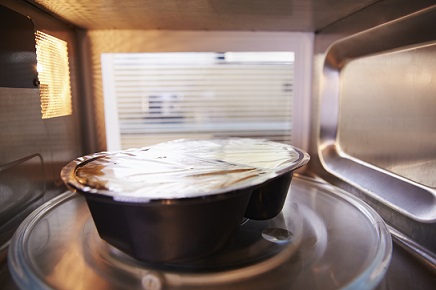 As we mentioned, there’s relatively little focus on glutathione among acne enthusiasts because it’s more complicated than other antioxidants. You can’t just eat tasty fruits or pop a pill. Most glutathione supplements are digested inefficiently and don’t work.
As we mentioned, there’s relatively little focus on glutathione among acne enthusiasts because it’s more complicated than other antioxidants. You can’t just eat tasty fruits or pop a pill. Most glutathione supplements are digested inefficiently and don’t work.
The good news is that with the right strategies and the slightest bit of brainpower, increasing your levels is a piece of cake. Firstly there’s the holy trinity of mineral co-factors:
Selenium – the mineral you can’t ignore. Study number two above found that after six weeks of 0.2mg of selenium, blood glutathione levels rose substantially.
Why is it so important? Glutathione is actually a family of eight enzymes – GPx1, GPx2, GPx7, and so on. 4 out of 8 use selenium as a cofactor in their creation in your cells, and one of them, GPx6, is actually a seleno-protein. Selenium is one of the ultimate minerals for clearing acne and glutathione is why.
The strategy – it’s easy to eat enough selenium through food. particularly through high quality meat, eggs and seafood. I don’t necessarily recommend a supplement, but if you want to cut right to the chase and buy a well-absorbed bottle of capsules, this Pure Encapsulations Selenium (amazon link) is perfect.
Magnesium – the second stage of glutathione synthesis involves the enzyme glutathione synthase. The ingredients of this enzyme are cysteine, glycine, ATP, and finally, magnesium ions.
Additionally, ATP relies on magnesium for its own synthesis. Not surprisingly then, this study found that human patients treated with magnesium had substantially higher glutathione levels after 12 weeks.
The strategy – magnesium deficiency is an epidemic, because levels in fruit and vegetables have plummeted over recent decades thanks to soil depletion. Therefore magnesium is a rare nutrient I advise everyone to supplement with (even if you don’t have acne). Magnesium glycinate is the best-absorbed form and this Pure Encapsulations Magnesium (amazon link) is a well-trusted brand.
Zinc – when scouting natural acne websites you might have read that zinc is an antioxidant. Well, it isn’t, but zinc does stimulate your body to produce more. In a 2003 study on swimming rats, a zinc fed group had healthy glutathione levels whereas the zinc deficient group had rock bottom levels.
The strategy – unlike magnesium, supplements are not necessary; some intelligent rearranging of your diet to include meat, fish, eggs and oysters (the greatest source) will work.
If you want to simplify things, then the optimal supplement is this MegaFood Zinc (amazon link), which is food-derived, organic and even contains a bonus fruit and vegetable blend.
Don’t go mad and megadose these acne minerals. All dietary minerals have a certain toxicity limit, so excessive blood levels can actually inhibit glutathione formation.
Bring them up to acceptable levels and you’ll get all the benefits for acne possible.
The proteins
Secondly, there are three amino acids that are critical for glutathione formation, and they are glycine, l-cysteine, and l-glutamine.
Again, it’s not necessary to eat scoop after scoop of these proteins but seeking above average levels is a smart idea. Because we mostly eat muscle meat rather than connective tissues and organs, a glycine sufficient human is a like a unicorn nowadays.
To start with you should eat good amounts of dietary protein from meat, fish, and eggs. This will provide enough amino acids to make your glutathione production at least decent. You need protein for strong, quickly healing skin anyway.
Then you can choose the specific foods with glutathione-friendly amino acid profiles, which include…
Whey protein – a trusted muscle fuel for bodybuilders, and perhaps the ultimate glutathione-boosting food. Whey contains cysteine, glycine, and l-glutamine in perfect proportions and quantities, but it also contains an amino acid called glutamylcysteine – a molecular bond of glutathione and cysteine, which rarely appears in other protein foods. There’s also many lactoferrins, immunoglobulins, and peptides that contribute.
NOTE: your whey MUST be cold-pressed. The amino acids are fragile and can be denatured with heating, particularly glutamylcysteine. Your whey should also be organic and from grass-fed cows, to avoid pesticide, antibiotic, and grain-fed contaminations. It must be a whey protein concentrate, not isolate.
Grass fed gelatin – exactly the kind of connective joints and ligaments that humans don’t eat anymore. This Great Lakes Pasture Raised Gelatin (amazon link) is extremely rich in the amino acid glycine. Additionally, glycine is a key ingredient of something else: your skin’s collagen.
Organ meats – heart, liver and kidneys are all rich in alpha-lipoic acid, a popular medicinal substance for detoxifying heavy metals. ALA is a strong precursor to glutathione, and has been shown to boost levels well in studies. Organ meats are incredibly acne-friendly anyway; they’re bursting with selenium, zinc and magnesium, and particularly vitamin A.
Red meat – top quality, grass-fed red meat is preferable to white meat for acne patients because it is higher in alpha-lipoic acid.
The final secret is sulphur rich plants. Glutathione itself is a sulphur based molecule, and hence, broccoli compounds like sulforaphane and also cyanohydroxybutene have been demonstrated to increase your levels. Brussel sprouts, kale, and cabbage also contain them, while broccoli and spinach are great food sources of alpha-lipoic acid.
The two most sulphurous plant foods in a marketplace are garlic and onions. Hence, this study found that their oils boosted glutathione peroxidase strongly enough to supress the growth of cancerous tumours.
Verdict and strategy
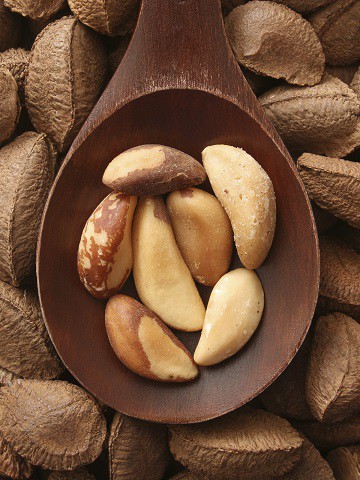 The studies are clear: acne sufferers commonly have low glutathione, and boosting levels could wipe your pimples clean.
The studies are clear: acne sufferers commonly have low glutathione, and boosting levels could wipe your pimples clean.
What are my actual recommendations? Firstly, every acne patient must fix their magnesium, zinc and selenium levels. They’re so integral for boosting glutathione that you can’t skip them. They reduce your acne in other ways too, like controlling stress.
Secondly, it would be smart to eat at least one serving of the aforementioned sulphurous vegetables per day. They’re terrific for acne anyway; broccoli contains 100% of the RDI for vitamin C while garlic contains anti-inflammatory allicin. Personally, I’m eating 100 grams of broccoli for lunch every day.
As long as you’re eating enough dietary protein, the amino acid strategies are more like bonuses, but whey protein concentrate is the most powerful.
Combine boosting glutathione with antioxidant-rich foods like pomegranate, dark chocolate, apples, sweet potatoes and coffee, and you could be entering your final few weeks of acne.
NEXT: learn the root causes of acne, clear your skin permanently
Thanks for reading!

What if we take Glutathione supplements along with maintaining healthy levels of other important vitamins and minerals like Zinc, Beta Carotene, Selenium, etc?
I wouldn’t – current evidence suggests that oral glutathione is obliterated by the digestive system and has a negligible effect. That includes foods like asparagus.
I agree with Richard. Glutathione pre-requisites or the building blocks of glutathione are all very fragile molecules. It is the cysteine molecule that is the problem. Cysteine is fragile and is normally the limiting factor in the production of Glutathione in your body. There is very little of it in processed foods and It breaks down in stomach acid and typically only 1-2% gets into the blood stream and to the cells. It is a huge problem.
Intravenous glutathione works somewhat in the blood stream and even in the liver, however, the glutathione molecule is way too big to get into cells throughout the body. In almost all cases taking supplements just doesn’t work for all these reasons. One case that I know of is an exception.
Now, before you lock your feet and lock your mind, I could care less about selling the company or the product. My wife and I just use it and I’m a distributor just to get the discounts.
We’ve been taking this product for 9 years. It has a proprietary molecule called Riboceine. In Riboceine, the cysteine is “chemically wrapped” or chemically formulated with Ribos, a sugar, which protects it through the the digestive tract. There are 20 Peer Review Clinical Studies on http://www.pubmed.gov about this molecule.
N=Acytl-Cysteine (NAC), a well known molecule in the medical community can raise glutathione if properly formulated almost 300%. Riboceine raises levels another 300% above NAC.
Raising your glutathione levels is HUGE in cellular health. Glutathione does about 300 functions in the body and many are life essential. Tissue cannot live without Glutathione, PERIOD!
There is a list on http://www.pubmed.gov that shows 74 major diseases or condition casued by decreased glutathione!
Don’t take my word for it. Check it out for yourself!!!
Yes, I was hoping one could just take a gluthione supplement??
More recent studies are saying that glutathione supplements work better than expected but your top priority is still to get the main ingredients in place. The minerals like magnesium are important for acne in other ways too.
What is the optimal dosage of whey protein for acne?